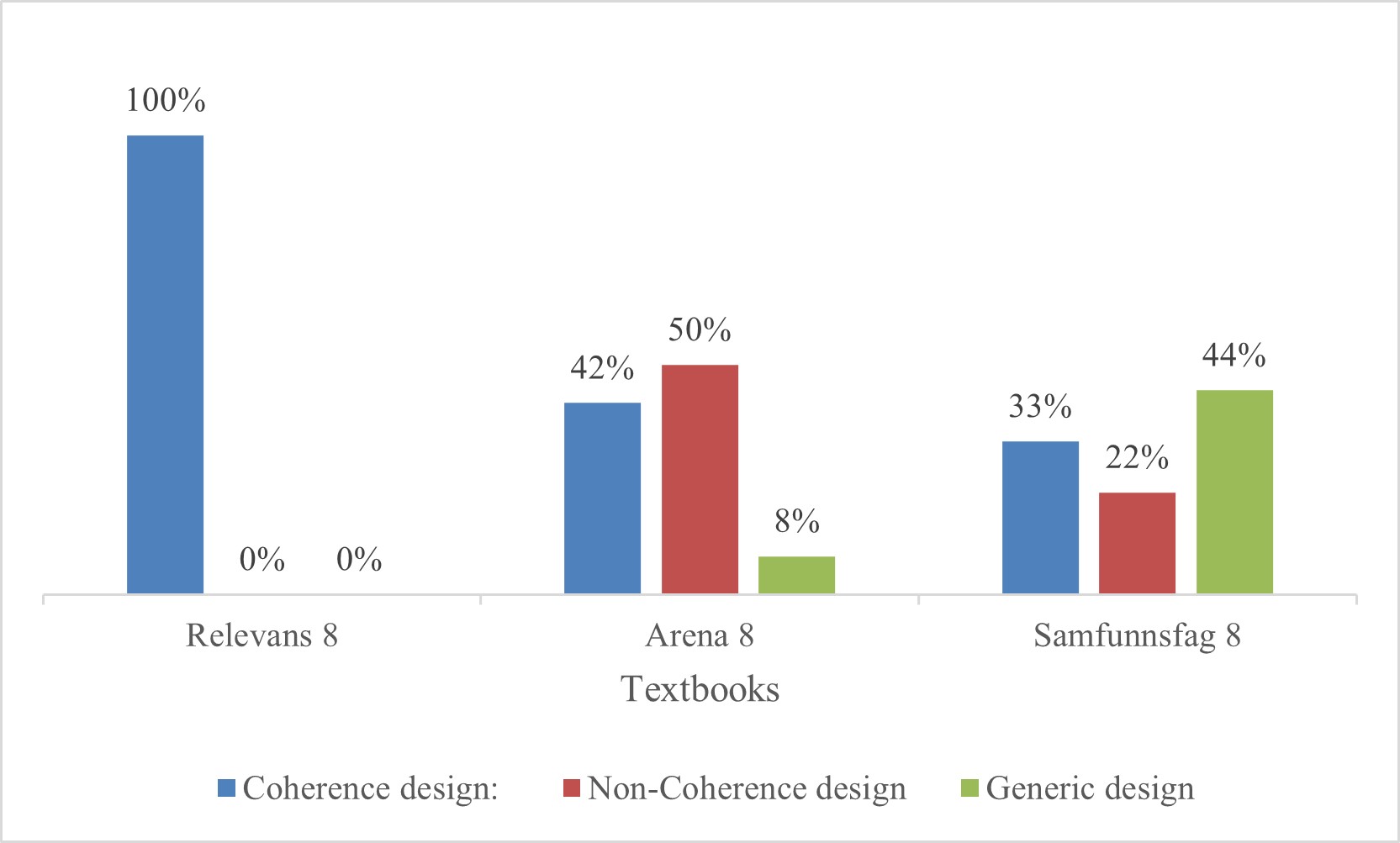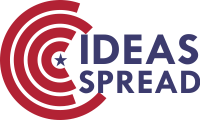The new Norwegian curriculum and integration of knowledge in textbooks in social studies: a comparative study
Abstract
The new Norwegian curriculum subject renewal is part of an international trend with a shift towards more knowledge-based curriculum, with greater emphasis on subjects and subject concepts, with the aim of realizing in-depth learning in schools. This paper, which is grounded on social realism and Ratas' CDC model, examines, and compares the design of the curriculum and the new textbooks in social studies. The comparative study reveals a gap between the curriculum and the textbooks, with quite different interpretations of the Norwegian curriculum reform. The paper explains why coherence design, which connects subject concepts, content knowledge and competencies, is a prerequisite for in-depth learning in social studies.
References
Benavot, A., & Meyer, H. D. (2013). PISA, power, and policy: The emergence of global educational governance, 23(1). Oxford: Symposium Books.
Bernstein, B. (2000). Pedagogy, symbolic control and identity: theory, research, critique. Lanham: Rowman & Littlefield.
Botten, V. A. (2020). Dybdelæring. En studie av dybdelæringsbegrepet i fagfornyelsen. (Master). Oslo. Retrieved from http://urn.nb.no/URN:NBN:no-83500
Bratberg, Ø. (2021). Tekstanalyse for samfunnsvitere (3. utgave. ed.). Oslo: Cappelen Damm akademisk.
Bratland, E. (2022). Inclusion and Neoliberal Education Reforms: What Has Gone Wrong, and Why Knowledge Should Be an Essential Part of the Solution. In: Cultures of Inclusive Education and Democratic Citizenship: Comparative Perspectives, M. Kohout-Diaz & M. Strouhal (eds.), pp. 66-80. Charles University, Carolinum Press. https://doi.org/10.14712/9788024650272
Bratland, E., & El Ghami, M. (2022a). Recontextualization of knowledge in the new Norwegian curriculum: Epistemic and non‐epistemic design in learning objectives for social studies. Curriculum journal (London, England). https://doi.org/10.1002/curj.197
Bratland, E., & El Ghami, M. (2022b). Epistemic and Nonepistemic Design in Textbooks in Social Studies for Lower Secondary School: Do the Textbooks Facilitate Knowledge Building and In-Depth Learning? Education research international, 2022, 1-10. https://doi.org/10.1155/2022/1692452
Bredahl, L., Dehle, E., Hammer, S., Hansen, R. G., Karlsen, S. A. K., Krogsrud, V. K., . . . Gaarder, T. (2020). Samfunnsfag 8 fra Cappelen Damm: Grunnbok (Utgave 1, bokmål[utgave]. ed.). Oslo: Cappelen Damm.
Heidenreich, V., Moe, M. J., Helgeland, C., Emberland, I., & Kielland, G. E. (2020). Relevans 8: samfunnsfag for ungdomstrinnet: Grunnbok (1. utgave, bokmål[utgave]. ed.). Oslo: Gyldendal.
Hellerud, S. V., Erdal, S. F., Johnsen, I. M., Westersjø, M., Hove, O., Kielland, G. E., & Hovland, Ø. (2020). Arena 8: samfunnsfag (1. utgave, bokmål[utgave]. ed.). Oslo: Aschehoug undervisning. Reform in South Africa (1 ed.). Florence: Florence: Routledge.
Hoadley, U. (2018). Pedagogy in Poverty: Lessons from Twenty Years of Curriculum Reform in South Africa (1 ed.). Florence: Florence: Routledge. https://doi.org/10.4324/9781315680927
Krippendorff, K. (2019). Content analysis: an introduction to its methodology (Fourth edition. ed.). Los Angeles: SAGE. https://doi.org/10.4135/9781071878781
Kunnskapsdepartementet. (2016). Meld. St. 28 (2015-2016). Fag – fordypning – forståelse: en fornyelse av Kunnskapsløftet. Oslo: Departementenes sikkerhets- og serviceorganisasjon
Kunnskapsdepartementet. (2019a). Læreplanverket for Kunnskapsløftet 2020 (LK20).
Kunnskapsdepartementet (2019b). Læreplan i samfunnsfag (SAF01-04). Læreplanverket for Kunnskapsløftet 2020.
Lingard, B., & McGregor, G. (2014). Two contrasting Australian Curriculum responses to globalisation: what students should learn or become. Curriculum journal (London, England), 25(1), 90-110. https://doi.org/10.1080/09585176.2013.872048
Lourie, M. (2020). Recontextualising Twenty-first Century Learning in New Zealand Education Policy: The Reframing of Knowledge, Skills and Competencies. New Zealand Journal of Educational Studies, 55(1), 113-128. https://doi.org/10.1007/s40841-020-00158-0
Ludvigsen, S. (2015). Fremtidens skole: fornyelse av fag og kompetanser (Vol. NOU 2015:8).
Maton, K. (2014). Knowledge and knowers: towards a realist sociology of education. New York: Routledge. https://doi.org/10.4324/9780203885734
Maton, K., & Chen, R. (2016). LCT in qualitative research: creating a translation device for studying constructivist pedagogy In K. Maton, S. Hood, & S. Shay (Eds.), Knowledge-building. Educational studies in Legitimation Code Theory (pp. 45-66). Routledge. https://doi.org/10.4324/9781315672342-11
Maton, K. (2016). Building knowledge about knowledge-building. In K. Maton, S. Hood, & S. Shay (Eds.), Knowledge-building: educational studies in legitimation code theory (pp. 1-23). London, New York: Routledge, Taylor & Francis Group. https://doi.org/10.4324/9781315672342
Maton, K., & Moore, R. (2010). Social realism, knowledge and the sociology of education: coalitions of the mind. London: Continuum.
McPhail, G. (2020). The search for deep learning: a curriculum coherence model. Journal of Curriculum Studies, 1-15. https://doi.org/10.1080/00220272.2020.1748231
McPhail, G., & Rata, E. (2016). Comparing Curriculum Types: ‘Powerful Knowledge’ and ‘21st Century Learning’. New Zealand journal of educational studies, 51(1), 53-68. https://doi.org/10.1007/s40841-015-0025-9
Moore, R. (2013). Social Realism and the problem of the problem of knowledge in the sociology of education. British Journal of Sociology of Education, 34(3), 333-353. https://doi.org/10.1080/01425692.2012.714251
Muller, J. (2009). Forms of knowledge and curriculum coherence. Journal of education and work, 22(3), 205-226. https://doi.org/10.1080/13639080902957905
Priestley, M., & Biesta, G. (2014). Reinventing the Curriculum: New Trends in Curriculum Policy and Practice. London: London: Bloomsbury Publishing Plc. https://doi.org/10.5040/9781472553195
Rata, E. (2016). A pedagogy of conceptual progression and the case for academic knowledge. British Educational Research Journal, 42(1), 168-184. https://doi.org/10.1002/berj.3195
Rata, E. (2019). Knowledge‐rich teaching: A model of curriculum design coherence. British Educational Research Journal, 45(4), 681-697. https://doi.org/10.1002/berj.3520
Rata, E., McPhail, G., & Barrett, B. (2019). An engaging pedagogy for an academic curriculum. Curriculum journal (London, England), 30(2), 162-180. https://doi.org/10.1080/09585176.2018.1557535
Rata, E. (2020). What is a knowledge-rich curriculum? New Zealand annual review of education, 26, 29-35. https://doi.org/10.26686/nzaroe. v26.6855
Rata, E. (2021). The Curriculum Design Coherence Model in the Knowledge‐Rich School Project. Review of education (Oxford), 9(2), 448-495. https://doi.org/10.1002/rev3.3254
Ryle, G. (1949). Knowing how and knowing that: Proceedings of the Aristotelian Society. 56, 212-225.
Sawyer, R. K. (2006). The Cambridge handbook of the learning sciences. Cambridge: Cambridge University Press. https://doi.org/10.1017/CBO9780511816833
Shay, S. (2014). Curriculum in Higher Education: Beyond False Choices. In P. Gibbs & R. Barnett (Eds.), Thinking about Higher Education (1st ed. 2014. ed., pp. 139-155). Cham: Springer International Publishing: Imprint: Springer. https://doi.org/10.1007/978-3-319-03254-2_10
Spielman, A. (2018) HMCI commentary: curriculum and the new education inspection framework. Retrieved from https://www.gov.uk/government/speeches/hmci-commentary-curriculum and-the-new-education-inspection-framework
Wheelahan, L. (2010). Why knowledge matters in curriculum: a social realist argument. Routledge.
Winch, C. (2013). Curriculum Design and Epistemic Ascent. J. Philos. Educ, 47(1), 128-146. https://doi.org/10.1111/1467-9752.12006
Winch, C. (2014). Know-how and knowledge in the professional curriculum. In M. Young & J. Muller (Eds.), Knowledge, Expertise and the Professions (pp. 57-70). Routledge. https://doi.org/10.4324/9781315883083-12
Young, M. (2020). Knowledge and the Sociology of Education. Acta paedagogica Vilnensia, 44, 10-17. https://doi.org/10.15388/ActPaed.44.1
Young, M., & Muller, J. (2013). On the powers of powerful knowledge. Review of education (Oxford), 1(3), 229-250. https://doi.org/10.1002/rev3.3017
Young, M. F. D. (2008). Bringing knowledge back in: from social constructivism to social realism in the sociology of education. London: Routledge. https://doi.org/10.4324/9780203073667


This work is licensed under a Creative Commons Attribution 4.0 International License.
Copyright for this article is retained by the author(s), with first publication rights granted to the journal.
This is an open-access article distributed under the terms and conditions of the Creative Commons Attribution license (http://creativecommons.org/licenses/by/4.0/).








1.png)

















